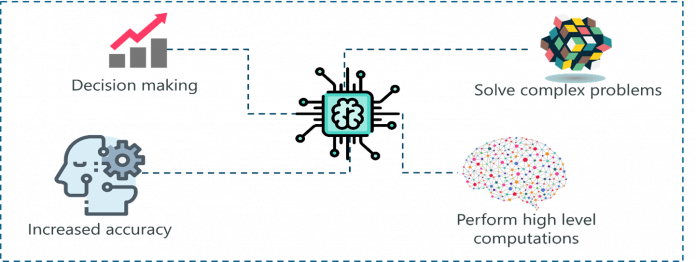This website uses cookies so that we can provide you with the best user experience possible. Cookie information is stored in your browser and performs functions such as recognising you when you return to our website and helping our team to understand which sections of the website you find most interesting and useful.

Related Category Blog
- 5 Ways Startups Can Leverage Gen AI for Competitive Growth
- Leveraging Artificial Intelligence and Machine Learning in Cloud Solutions
- Unleash the Potential of Cloud Modernization via Containerization with AWS & Redington
- Redington’s object storage-based network share mounting solution on AWS Cloud
- Redington’s solution on persistent storage for high-performance workloads using Amazon FSx for Lustre
Archives by Month:
- October 2024
- September 2024
- April 2024
- December 2023
- November 2023
- August 2023
- June 2021
- April 2021
- August 2020
- February 2020
- August 2019
- June 2019
- May 2019
- March 2019
- February 2019
- January 2019
- December 2018
- November 2018
- June 2018
- May 2018
- April 2018
- February 2018
- November 2017
- September 2017
- August 2017
Categories
Leveraging Cloud Analytics for Sales Forecasting and Decision Making

Introduction : In the rapidly evolving digital landscape, cloud computing has become an indispensable technology for businesses worldwide. Its agility, scalability, and cost-effectiveness has transformed the way organizations operate. However, its true potential is unlocked when combined with artificial intelligence (AI) and machine learning (ML) capabilities. This dynamic fusion empowers businesses to innovate, automate, and optimize their operations like never before. In this blog, we will explore how this revolutionized various industries and drive meaningful advancements.
Smarter Resource Allocation :
AI and ML algorithms can analyze patterns and predict future demands with impressive accuracy. When integrated into cloud platforms, these intelligent insights enable organizations to allocate computing resources optimally. With dynamic provisioning, businesses can effortlessly scale their operations up or down based on real-time usage, ensuring cost-effectiveness and improved performance.

Scalability and Flexibility
Cloud analytics platforms offer unmatched scalability, enabling businesses to handle data from various sources and accommodate growth without investing in costly infrastructure upgrades. This flexibility allows businesses to adapt to changing needs and scale their capabilities as their business expands, ensuring no opportunities are missed due to limited resources.
from various sources and accommodate growth without investing in costly infrastructure upgrades. This flexibility allows businesses to adapt to changing needs and scale their capabilities as their business expands, ensuring no opportunities are missed due to limited resources.
Predictive Analytics for Sales Forecasting
One of the most significant advantages of cloud analytics is its ability to perform predictive modeling and sales forecasting. By using historical sales data, customer behavior, and external factors, businesses can develop more accurate sales forecasts. These forecasts act as valuable guides for inventory management, resource allocation, and strategic planning.
Enhanced Customer Insights
Understanding customer behavior is crucial for making informed decisions. Cloud analytics can analyze vast amounts of customer data, including purchase history, preferences, and interactions with the brand. This comprehensive view of customers enables businesses to personalize marketing efforts, identify high-value customers, and optimize the sales process to drive customer loyalty and retention.
Improved Decision-Making
It offers powerful visualization tools and interactive dashboards that help decision-makers comprehend complex data easily. With information presented in a visually engaging manner, executives can make well-informed decisions quickly and confidently. Its agility ensures that insights are accessible from anywhere, enabling remote teams to collaborate effectively.
Cost Efficiency
By utilizing cloud-based analytics solutions, businesses can save costs on infrastructure, maintenance, and software updates. They can choose from various pricing models, paying only for the resources they use, making it a cost-efficient option for both small startups and large enterprises.
Data Security and Compliance
 Security is a paramount concern when dealing with sensitive business information. Reputable cloud service providers implement robust security measures to safeguard data from unauthorized access and cyber threats. Additionally, these solutions are designed to comply with industry regulations, ensuring data privacy and compliance with relevant laws.
Security is a paramount concern when dealing with sensitive business information. Reputable cloud service providers implement robust security measures to safeguard data from unauthorized access and cyber threats. Additionally, these solutions are designed to comply with industry regulations, ensuring data privacy and compliance with relevant laws.
Conclusion
The integration of cloud analytics in sales forecasting and decision-making has transformed the way businesses operate. The power of real-time analysis, predictive modeling, and enhanced customer insights empowers companies to make agile, data-driven decisions that drive growth and success. Embracing cloud analytics is no longer just an option but a necessity for businesses aiming to thrive in an ever-changing, competitive marketplace.



